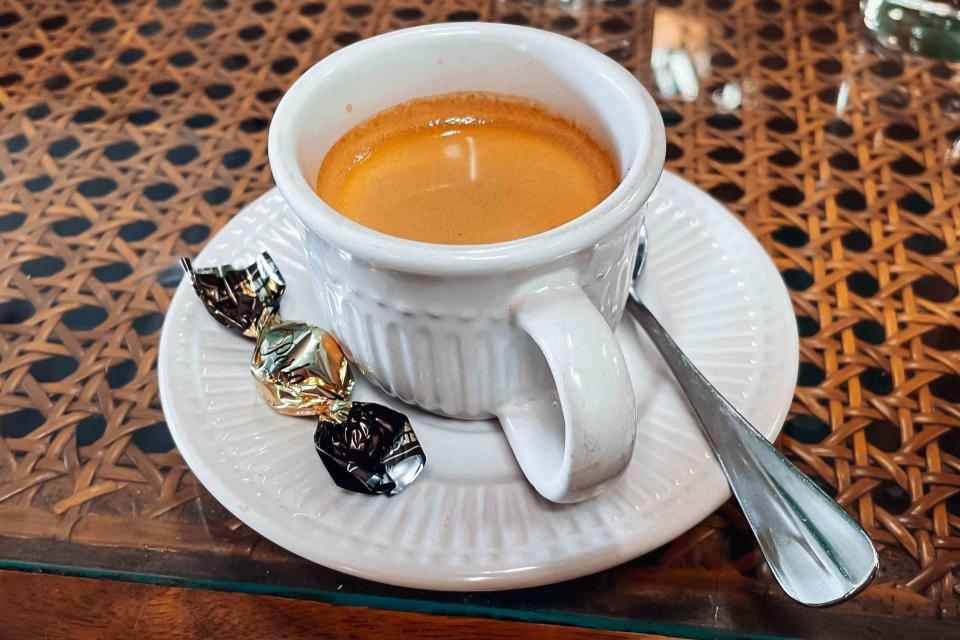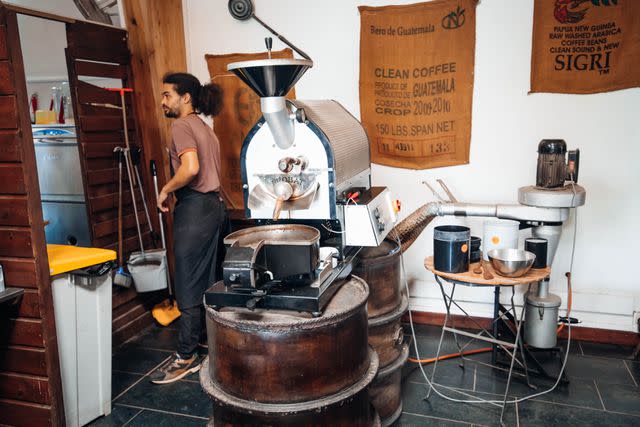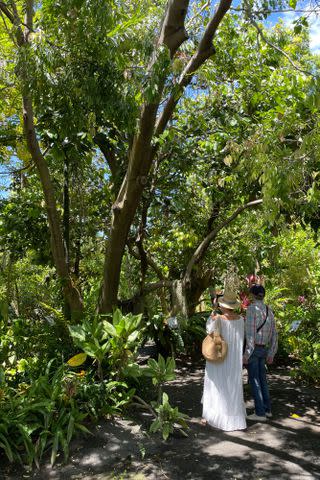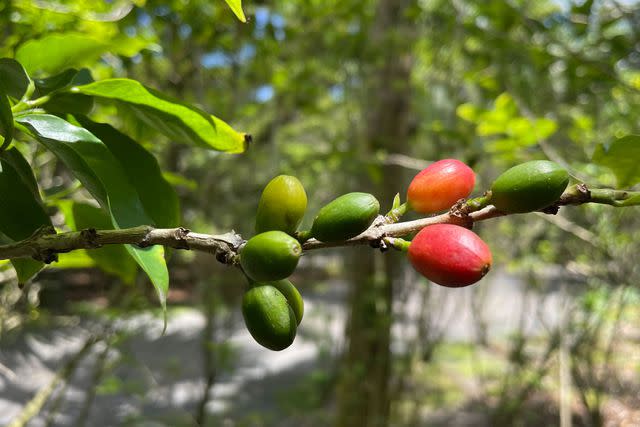Buyers Are Willing to Pay Over 500 Dollars for This Super Rare Coffee — Here's How to Try It
Sometimes, an ordinary cup of Joe just doesn't cut it.

Suzie Dundas
Walk into any gourmet coffee roastery, and you’ll see no shortage of claims that their beans are award-winning, the best of the best, or exceptionally rare.
But when it comes to Bourbon Pointu, an Arabica coffee that buyers are willing to pay nearly 500 Euros per kilo for, those claims may actually be true.
“Bourbon Pointu is less known, simply because of its scarcity,” says Jonathan Morris, research professor in history at the University of Hertfordshire in the United Kingdom, and the author of Coffee: A Global History. “But it certainly commands a high price on the story and scarcity basis.”
On a map of Africa, you’ll need to zoom in to find Réunion, a small island off the coast of Madagascar.
The island has been a French overseas territory since the 1600s, when it was known as Bourbon, in honor of Henry IV from the French house of Bourbon. By the time of the Bourbon reign, France’s coffee culture was booming, and Paris had hundreds of cafes serving as social hubs. This created a surge in coffee consumption, with tropical French colonies capable of growing coffee crops coming under pressure to meet the demand.

Suzie Dundas
Recent genetic testing proves that Bourbon Pointu is a genetic mutation of the early Arabica plants brought to Réunion French traders. Only a small handful of the plants were able to survive by adapting to the island's volcanic soil. The beans developed a pointy shape, leading to their name: Bourbon Pointu, or “pointy bourbon.”
“The French East India Company was heavily invested in coffee production to the point that in 1724, it introduced a policy that any settler failing to grow it on their concessions in Bourbon could have their property repossessed,” says Morris. And it was for good reason. “Bourbon became the most valued of the French colonial coffee origins,” he says. Many sources attest that coffee was even the preferred drink of King Louis XV.
What is Bourbon Pointu coffee?
Bourbon Pointu is a sub-species of Coffea arabica, the only naturally occurring low-caffeine coffee bean in the world. However, as caffeine both deters pests and increases heartiness, the Bourbon Pointu plant is more susceptible to diseases, such as leaf rust, as well as changing environmental conditions, leading to overall lower yields. The plants thrive only in a few specific micro-climates on the slopes of Piton des Neiges, one of the island’s two volcanoes.
Coffee cultivation on the island nearly went away in the 1860s when it became clear other crops were more profitable, and by the mid-1900s, there were no Bourbon Pointu plantations left on the island. In the early 2000s, France’s Department of Agriculture rediscovered the coffee bean in a few private gardens and helped establish the island’s modern-day coffee farms.

Suzie Dundas
Bourbon Pointu’s modern-day revival
Today, there are roughly 50 producers across the island making Bourbon Pointu that meets the cooperative’s specific quality and production standards. One is Domaine du Café, a botanical garden and cafe near the town of Saint-Pierre. The cafe has more than 900 various plant species from across the island, but the highlight is Domaine du Café’s coffee plants, for which the estate was named.
The estate makes two kinds of coffee: Bourbon Pointu la Kour (the original pointy-bean Bourbon pointu), and Bourbon Rond la Kour. The former is fruitier and lighter, the latter is heavier with notes of chocolate. Bourbon Pointu la Kour is grown on the island’s high-elevation slopes, gaining its fruity notes from the young, nutrient-rich soil around the volcano. Bourbon Rond — “round Bourbon” — is grown at lower elevations closer to the cafe.
On a recent visit, my estate guide is Timothé, who humors my poor French as he gives me the scoop on its coffees and gardens. I tried both the pointu and the rond, especially as the 4 euros price is better than you’ll find just about anywhere else in the world. Most of the island's 100 or so kilos produced each year are sold to Japan, where consumers can buy just under 3 ounces for 1300 yen, or around $88 US — enough to make just 4 or 5 cups of coffee.
Timothé says that to properly taste the coffee, one should cleanse the palate with water, then stir the coffee to mix the flavors and introduce oxygen into the cup. Only then is it ready to sip. “But the most important advice,” he says, “is to taste it without sugar. You can add it later if you must.”

Suzie Dundas
What does Bourbon Pointu coffee taste like?
The Bourbon Pointu has a complex, fruity flavor with a sweet aftertaste. The bourbon rond’s flavor is richer and deeper, almost like a mocha; the chocolate notes are easy to notice; Despite being grown in acidic soil, neither has a sour or tart taste.
Whether Bourbon Pointu really is the best coffee in the world is, of course, a matter of opinion, but it’s constantly earned accolades from buyers and professionals around the world. It won eight awards in the 2023 World Coffee Challenge, and producers are racing to grow the beans in places like Panama and the Hawaiian Islands. It’s nearly impossible to find someone outside of Japan’s specialty coffee circles who has tasted the scarce coffee, and it’s rarely available to coffee drinkers in the US.
For now, anyone who wants to taste the exclusive cup of Joe has limited options — you’ll either need to travel to Réunion and visit one of the few coffee farms open to the public, or start attending specialty coffee events in Japan.
Of course, you can try it at home, if you’re willing to pay the steep price. If you do buy it, be sure to appreciate each drop. It’s a coffee made for pleasure, relaxation, and savoring — after all, the low caffeine levels won’t do much for your morning wake-up routine.
For more Food & Wine news, make sure to sign up for our newsletter!
Read the original article on Food & Wine.


